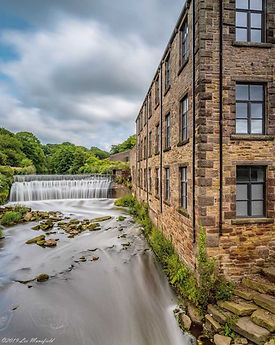01257 263903
MILL COURT
at ROACHBRIDGE
History
Roach Bridge Mill was built in 1784 as a cotton spinning mill. In November 1801 much of the mill was damaged by fire, resulting in hard times and the owner, John Watson, eventually spending time in Lancaster’s debtors’ prison. The mill continued to spin cotton until the 1870s when it was taken over for paper-making by Roach Bridge Paper Company. The present owners involvement with the site started in the 1920’s when Josiah Harper, a local paper merchant became the principal customer of the Paper Mill. His son, Albert continued the strengthening association and in 1947 purchased the Mill with the paper business.Paper manufacturing struggled in the later years of the 20th century and in 1999 the printing and converting part of the business was temporarily moved into a small site in Preston, whilst paper making on site ceased. Eventually the business moved back to this site in 2009. The site is now owned and operated by Edenbrace Ltd., a family company owned and run by descendants of Josiah Harper.



Site location
Set in the shallow valley of the river Darwen, with areas of natural interest to the east and south and open countryside to the west, Mill Court, a new development of houses for sale, is located opposite Roach Bridge Mill, a historic Lancashire mill.
Mill Court is set back from the road inside its own walled courtyard.
The site has excellent communication links with the M6 motorway junction only a couple of miles away. The nearest train station is in Hoghton and the site is effectively between Preston, Blackburn and Bamber Bridge, an excellent location for a development of this sort.
The surrounding small hamlets are traditional in nature with a number of interesting renovation projects in close proximity.

Redevelopment of the mill site
Roach Bridge Mill site is split into two areas, the Upper Site and the Lower Salle.
Upper Site
Home to Roach Bridge Tissues and a variety of small businesses the Upper Site is comprised of small industrial units.
The Lower Salle
The Lower Salle is undergoing a redevelopment for the 21st century and beyond. At its heart lies a water turbine driven by the waters of the river Darwen The intention is to make the site a truly sustainable environment for commercial developments using contemporary sustainable construction techniques with environmentally friendly systems and super insulated structures. Internationally acclaimed sculptor Charles Hadcock, a director of the management company, is closely involved with the redevelopment and keeps a studio on site.


